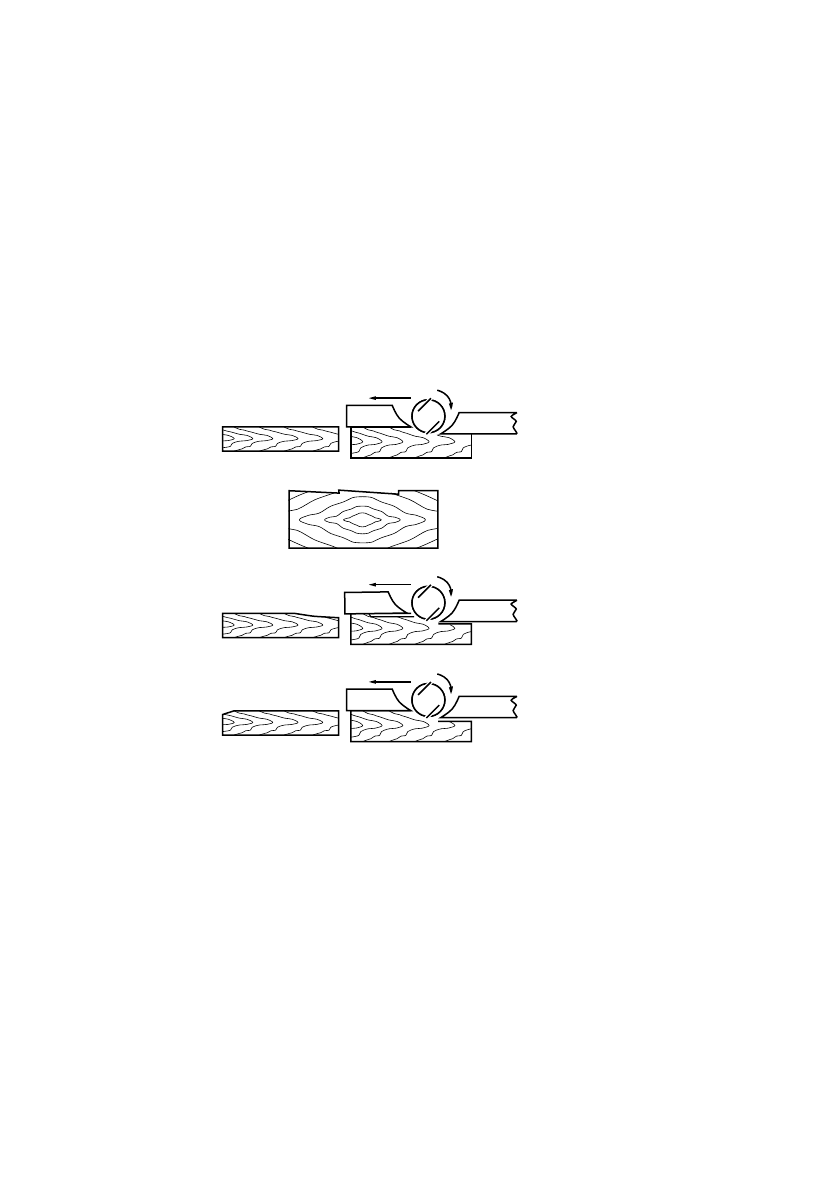Электрорубанки Makita KP0800X1 - инструкция пользователя по применению, эксплуатации и установке на русском языке. Мы надеемся, она поможет вам решить возникшие у вас вопросы при эксплуатации техники.
Если остались вопросы, задайте их в комментариях после инструкции.
"Загружаем инструкцию", означает, что нужно подождать пока файл загрузится и можно будет его читать онлайн. Некоторые инструкции очень большие и время их появления зависит от вашей скорости интернета.

7
Fig.9
6.
Set the drum cover over the adjusting plate/set
plate and screw in the three hex flange head bolts
so that a gap exists between the drum and the set
plate to slide the mini planer blade into position.
The blade will be positioned by the planer blade
locating lugs on the set plate.
7.
The blade's lengthwise adjustment will need to be
manually positioned so that the blade ends are
clear and equidistant from the housing on one
side and the metal bracket on the other.
8.
Tighten the three hex flange head bolts (with the
socket wrench provided) and rotate the drum to
check clearances between the blade ends and the
tool body.
9. Check the three hex flange head bolts for final
tightness.
10. Repeat procedures 1 - 9 for the other blade.
For the correct planer blade setting
Your planing surface will end up rough and uneven,
unless the blade is set properly and securely. The blade
must be mounted so that the cutting edge is absolutely
level, that is, parallel to the surface of the rear base.
Refer to some examples below for proper and improper
settings.
(A)
(B)
(B)
(A)
(B)
(A)
(A) Front base (Movable shoe)
(B) Rear base (Stationary shoe)
Correct setting
Nicks in surface
Gouging at start
Gouging at end
Although this side view cannot
show it, the edges of the blades
run perfectly parallel to the rear
base surface.
Cause: One or both blades fails to
have edge parallel to rear
base line.
Cause: One or both blade edges
fails to protrude enough in
relation to rear base line.
Cause: One or both blade edges
protrudes too far in relation
to rear base line.
EN0004-1
Dust bag (accessory)
Fig.10
For tool without nozzle
Remove the chip cover and install the nozzle (optional
accessory). Attach the dust bag onto the nozzle . The
nozzle is tapered. When attaching the dust bag, push it
onto the nozzle firmly as far as it will go to prevent it from
coming off during operation.
For tool with nozzle
Attach the dust bag onto the nozzle. The nozzle is
tapered. When attaching the dust bag, push it onto the
nozzle firmly as far as it will go to prevent it from coming
off during operation.
Fig.11
When the dust bag is about half full, remove the dust
bag from the tool and pull the fastener out. Empty the
dust bag of its contents, tapping it lightly so as to remove
particles adhering to the insides which might hamper
further collection.
NOTE:
•
If you connect a Makita vacuum cleaner to this tool,
more efficient and cleaner operations can be
performed.
Connecting a vacuum cleaner
Fig.12
For tool without nozzle
When you wish to perform clean planing operation,
connect a Makita vacuum cleaner to your tool. Then
connect a hose of the vacuum cleaner to the nozzle
(optional accessory) as shown in the figures.
For tool with nozzle
When you wish to perform clean planing operation,
connect a Makita vacuum cleaner to your tool. Then
Характеристики
Остались вопросы?Не нашли свой ответ в руководстве или возникли другие проблемы? Задайте свой вопрос в форме ниже с подробным описанием вашей ситуации, чтобы другие люди и специалисты смогли дать на него ответ. Если вы знаете как решить проблему другого человека, пожалуйста, подскажите ему :)





































































